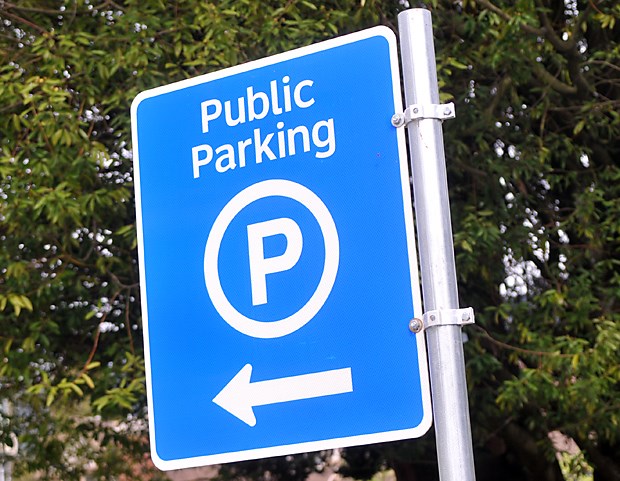When it comes to parking, what’s the right balance between accommodating people who live in the neighbourhood and making an area accessible for others to enjoy?
That question was a central part of the discussion during a District of North Vancouver council workshop Monday, devoted primarily to discussing a new on-street parking management policy.
A wide-ranging parking policy is needed in the district in order to help staff better manage parking restrictions, especially when it comes to implementing measures such as resident-only parking, time-limited parking or pay parking in local parks, in a fair and consistent way across the municipality, according to a report prepared by Steve Carney, the district’s transportation section manager.
“There really does need to be a balance between the livability of the local residents and the accessibility for all district residents,” Carney told council.
Because the district hasn’t previously had an on-street parking policy, regulations around parking have evolved inconsistently over time across the municipality without a set of council-endorsed criteria for evaluating what kind of parking is needed and where, according to Carney.
“We don’t see this as being completely black and white,” he said.
There’s been a 75 per cent increase in local park use compared to this time a year ago, likely due to the ongoing COVID-19 pandemic, according to staff.
Because of this, there has been increased parking demands and the need for a policy that guides how the district uses its curb-side space when it comes to places such as its parks, residential neighbourhoods and potential town centres.
Coun. Jim Hanson said he was generally in favour of the idea of a new parking policy, but cautioned the policy should allow space for as much input as possible from neighbours, business owners and visitors who may be affected by a parking decision.
“I would like to see more of an entrenchment around consultation,” said Hanson.
Under the new policy, a particular block would have to satisfy a number of criteria in order to be designated as resident-only parking or receive a time-limited parking designation, such as being an area where parking demand is high, completing a petition signed by at least 67 per cent of homeowners seeking the exemption, and having a demonstrable shortfall of on-street parking on weekdays or weekends.
Couns. Betty Forbes and Lisa Muri argued it wasn’t fair for residents to have to pay for on-street parking permits, or pay parking at parks, when it was visitors to places such as busy Deep Cove that were taking spots on their streets to begin with.
“People pay a lot of taxes,” said Muri. “Can we just give them a little reprieve from all the people that are coming and driving around the block?”
Couns. Jordan Back, Mathew Bond and Megan Curren advocated for a parking policy that didn’t encourage a future with more automobile use.
“We need to carefully balance necessity with convenience,” said Curren. “For me, the default is that we don’t use our roads for parking cars and we primarily use our roads as a best way to move people.”
Council also discussed a proposed pay parking pilot project at Lynn Canyon Park during Monday’s workshop.
Although not formally part of the district’s parking policy discussion, the proposal includes recommendations for the implementation of pay parking where appropriate.
“These two issues are really interwoven,” said Carney. “We can’t do one without the other.”
Noting that Lynn Canyon Park attracts more than a million visitors annually – with a peak of upwards of 2,500 vehicles per day during the summer season – the pilot project will seek to implement pay parking, as well as on-street parking restrictions in the adjacent neighbourhoods, for a one-year trial.
The pay parking will be installed along with the parking lot improvement project upgrades that are already underway there, according to staff.
The infrastructure for the pay parking will cost approximately $280,000 and can generate annual revenue between $450,000 and $900,000, according to the report.
When the pilot project formally comes before council in an upcoming meeting, Forbes said she would consider voting for it only if there was an element of the project that supported local residents, who make up 20 per cent of the annual visitors to the park every year, by giving them the option of an exemption to pay parking.
“It’s their natural asset in their backyard,” she said.
Back said he didn’t think a pay parking exception for residents was needed.
“I support putting the money back into the parks,” he said.
Council will vote on the on-street parking management policy and Lynn Canyon pay parking pilot at an upcoming meeting. If they pass, both items would be slated to come into effect later this summer.



